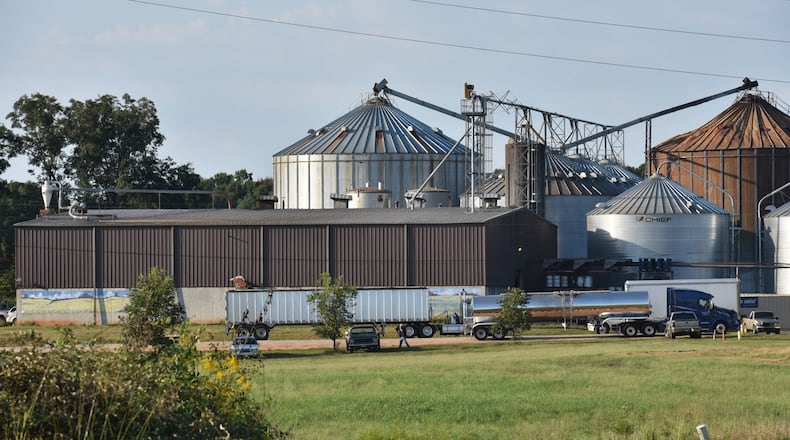Days before he was sworn into office, Gov. Brian Kemp quietly settled a lawsuit filed by a well-connected financier who claimed the Republican owed him $500,000 on an investment in a struggling agriculture firm.
Court documents show a consent order between Kemp, Hart AgStrong and businessman Rick Phillips was signed Jan. 8 and filed in Gwinnett County Superior Court on Jan. 11, shortly before Kemp’s inauguration.
Terms of the settlement were not disclosed, and attorneys for the parties declined to comment.
“This case was administratively dismissed,” said Ryan Mahoney, a Kemp adviser. “The filing speaks for itself.”
Phillips claimed in the 2017 lawsuit that Kemp failed to repay the loan he negotiated and guaranteed for Hart AgStrong, a seed processor based in northeast Georgia that struggled financially after an ill-fated expansion into Kentucky.
The lawsuit factored prominently in Kemp's campaign for governor, as Republican Lt. Gov. Casey Cagle and Democrat Stacey Abrams both seized on it to raise concerns about his financial viability and his business background.
A separate lawsuit targeting Kemp filed by other investors was settled for roughly $200,000 last year, but Phillips continued to press his case – and was not shy about criticizing Kemp in the throes of the campaign.
"I expected him to keep his word, and he didn't," Phillips said in an earlier interview. "That speaks volumes about Brian."
Financial records show that Kemp invested $750,000 in the company a decade ago and guaranteed $10 million in loans to AgStrong – about twice the net worth he reported in state disclosures.
Documents show two loans, totaling $600,000, were due in late December. Others begin to mature this year.
The Democratic Party of Georgia, which recently launched digital ads questioning the investments, said the settlement doesn't change the fact that Kemp owes "hundreds of thousands of dollars in unpaid loans he's never made a payment on."
“We can't trust a politician who owes more to himself and his business interests than he does to Georgians,” said Maggie Chambers, the party’s spokeswoman.
Kemp declined to take questions after a Wednesday budget address. His aides have said AgStrong’s property and equipment back most of those loans, and that Kemp was not the only investor who promised to pay if the company could not.
And Kemp said in an earlier interview that he wanted to “invest early in a company that was creating jobs and economic opportunity” and that he’s confident the company will recover and repay the loans.
The new plant was pitched to local farmers in Kentucky as a lucrative way to diversify their crops using a portion of their land to grow plants not usually cultivated in the steamier Southern climate.
But it struggled with technical problems and poor financial decisions that roiled the small Kentucky town where it's located. One local businessman told The Atlanta Journal-Constitution that people "feel betrayed" by its owners. At one point, the company tallied more than $2 million in missed payments to area farmers.
As the election approached, Kemp professed to know little about AgStrong's operations. In a recent deposition, Kemp used variations of "I don't know," "I don't remember" or "I don't recall" at least 91 times when asked about the company's finances and operations.
He distanced himself from the company as its financial problems mounted. He resigned from its board in August 2017 and steadily sold off his stake in the company. He reported owning a roughly one-quarter stake in 2010; his aides say he now owns about 8 percent.
Stay on top of what’s happening in Georgia government and politics at ajc.com/news/georgia-government/.
About the Author
Keep Reading
The Latest
Featured




